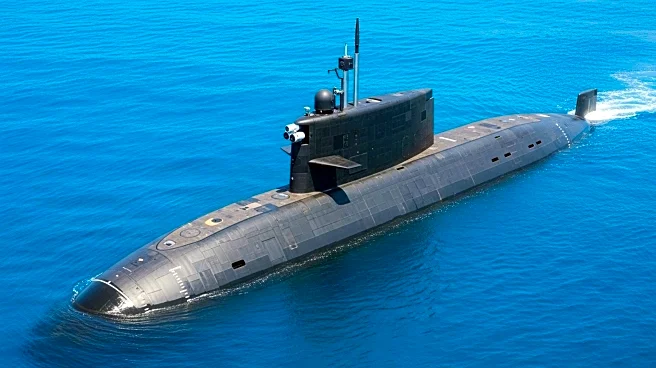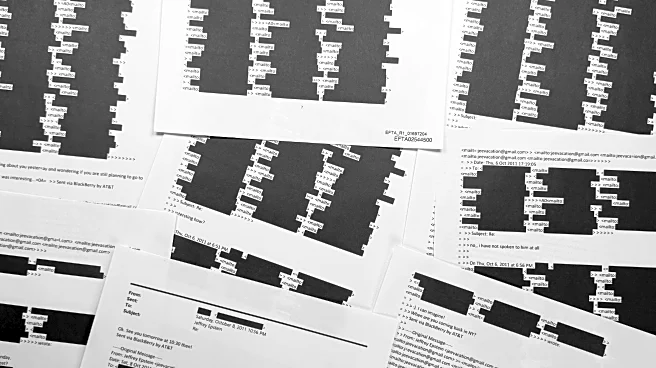What is the story about?
What's Happening?
Taiwan has increased its patrols of subsea cables in the Taiwan Strait, a move seen as a response to what Taipei describes as China's grey-zone warfare tactics. These cables are crucial for Taiwan's communications infrastructure, and recent incidents have raised concerns about their vulnerability. Taiwanese coast guard vessels are now conducting 24-hour patrols to monitor for any disruptive activities. The patrols are equipped with alert systems to detect vessels within a one-kilometer range of the cables, issuing radio warnings before dispatching coast guard vessels. Taiwan has linked two incidents of suspected underwater sabotage to China-linked boats this year, prompting heightened security measures. The Taiwan Affairs Office in China has previously dismissed these claims, accusing Taiwan of manipulation. Taiwan's National Security Council has highlighted the proximity to China and the dense population of submarine cable areas as factors contributing to the vulnerability.
Why It's Important?
The increased patrols underscore the strategic importance of subsea cables for Taiwan's national security and communication networks. These cables are vital for internet connectivity and data transmission, making them a target in geopolitical conflicts. Taiwan's actions reflect broader concerns about China's influence and potential threats to infrastructure. The situation also highlights the ongoing tensions between Taiwan and China, with implications for regional stability. The patrols are part of Taiwan's efforts to safeguard its sovereignty and maintain peace in the region. The sharing of intelligence with other countries indicates a collaborative approach to addressing these security challenges.
What's Next?
Taiwan is likely to continue its enhanced patrols and monitoring efforts to protect its subsea cables. The situation may lead to further diplomatic exchanges between Taiwan and China, as well as increased international attention on the security of undersea infrastructure. Taiwan's collaboration with other countries in sharing intelligence could strengthen alliances and lead to coordinated efforts in addressing similar threats globally. The ongoing surveillance and security measures may also prompt China to respond, potentially escalating tensions in the region.
Beyond the Headlines
The focus on subsea cables highlights the broader issue of infrastructure security in geopolitical conflicts. As digital communication becomes increasingly important, protecting these networks is crucial for national security. The situation also raises ethical questions about the use of grey-zone tactics and the impact on civilian infrastructure. Long-term, this could lead to increased investment in technology and security measures to safeguard critical infrastructure from potential threats.
















